I was supposed to visit the city area, but a sudden rain forced me to postpone my plans for tonight. It was a bit disappointing because I had planned this a few days ago to check out Clarke Quay on a Friday night, knowing it’s when the place is at its liveliest. Since things didn’t go as planned, I decided to stay home and go through my archives to work on editing photos that had been waiting for attention. Whenever I go out for a photography walk, I always set aside the pictures I intend to contribute to the black-and-white photography community.
Over time, I’ve accumulated plenty of photos piling up in my folders. So, I decided to spend the evening editing them. I use Lightroom on my laptop, which allows me to effectively categorize photos according to my preferred themes. Among these categories, I always set aside photos for the black-and-white community, including street art, cityscapes, architecture, and street photography.
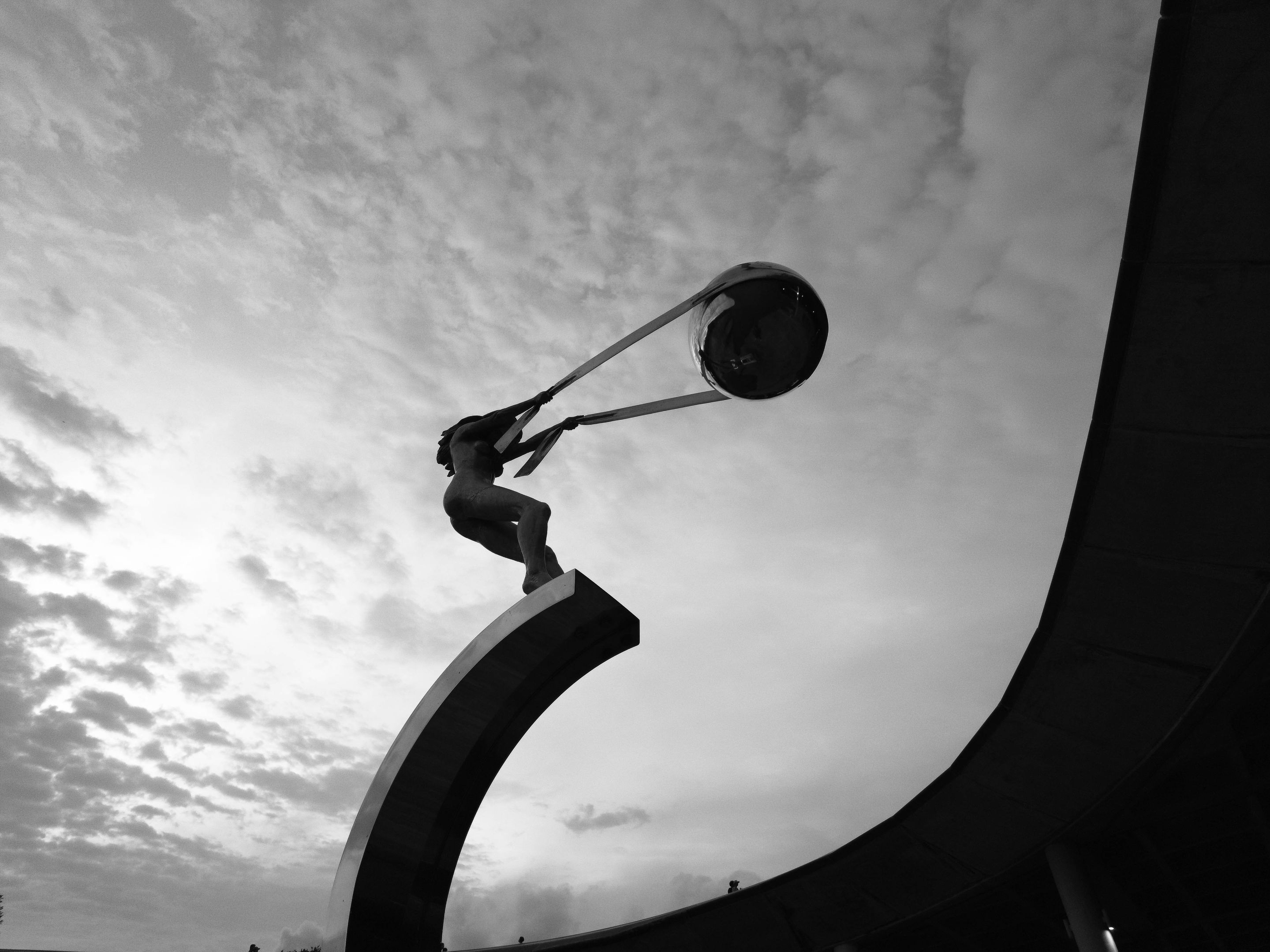
For street art, I came across a sculpture during my visit to Marina Barrage last weekend. I think it was installed only in recent years because I don’t recall seeing it before. It seems to be one of those metal sculptures with deeper meaning embedded in its design.
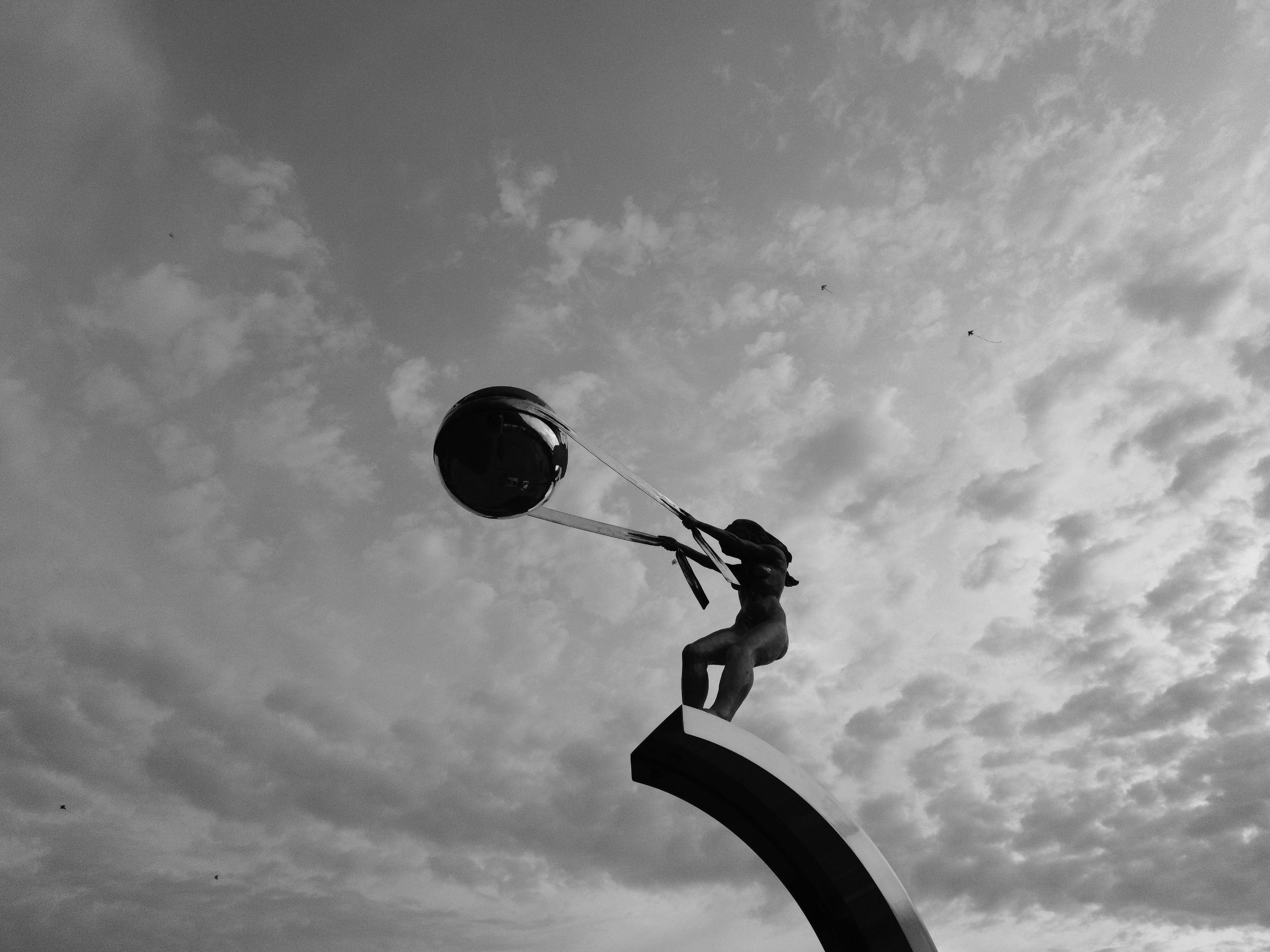
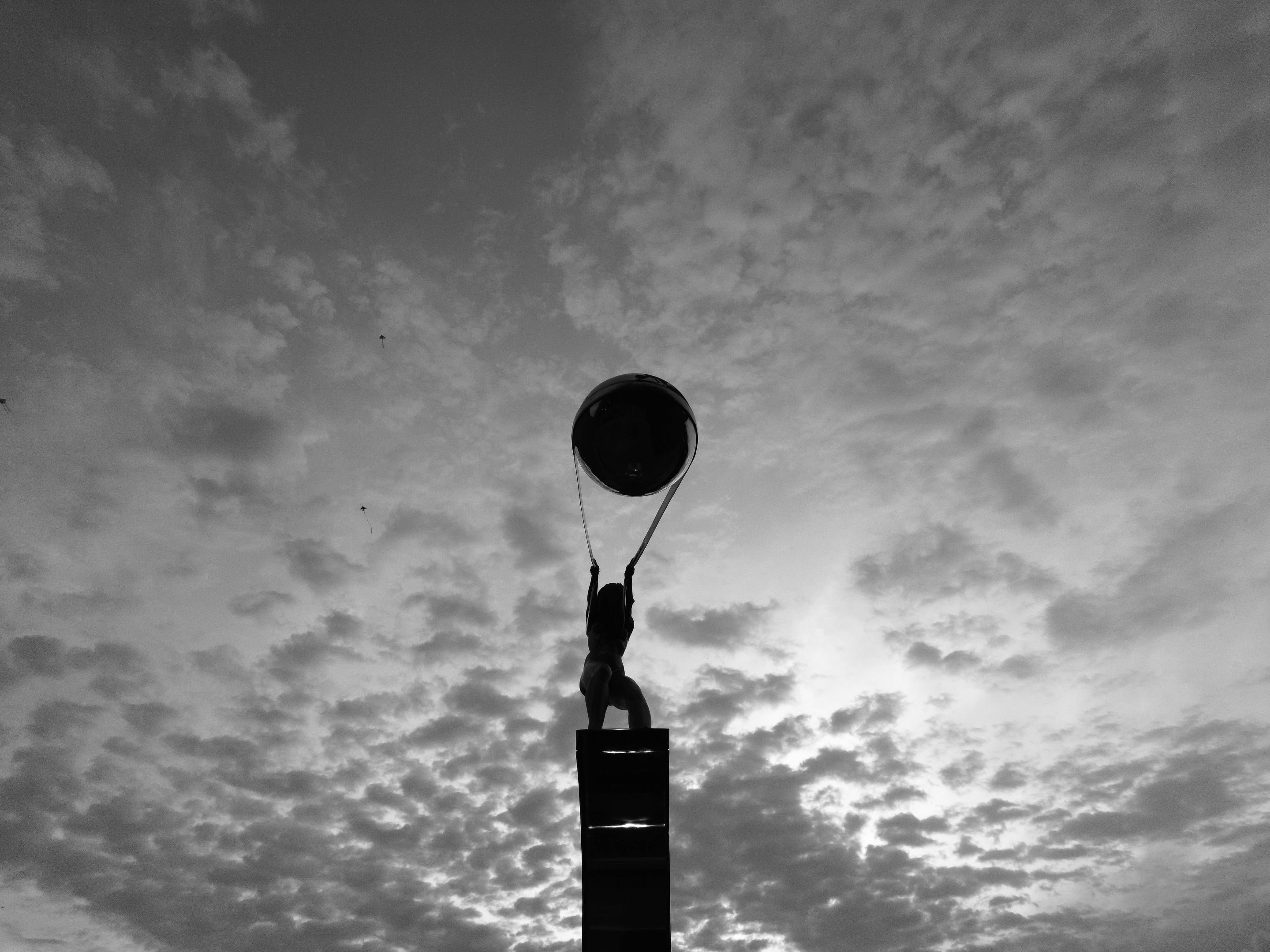
I particularly liked how it contrasted against the sky in the background. The soft, smooth, and shiny surface of the sculpture paired beautifully with the fluffy patterns of the clouds. The lighting conditions at the time created a striking silhouette, and I worked with that approach to find an angle that I felt worked best.
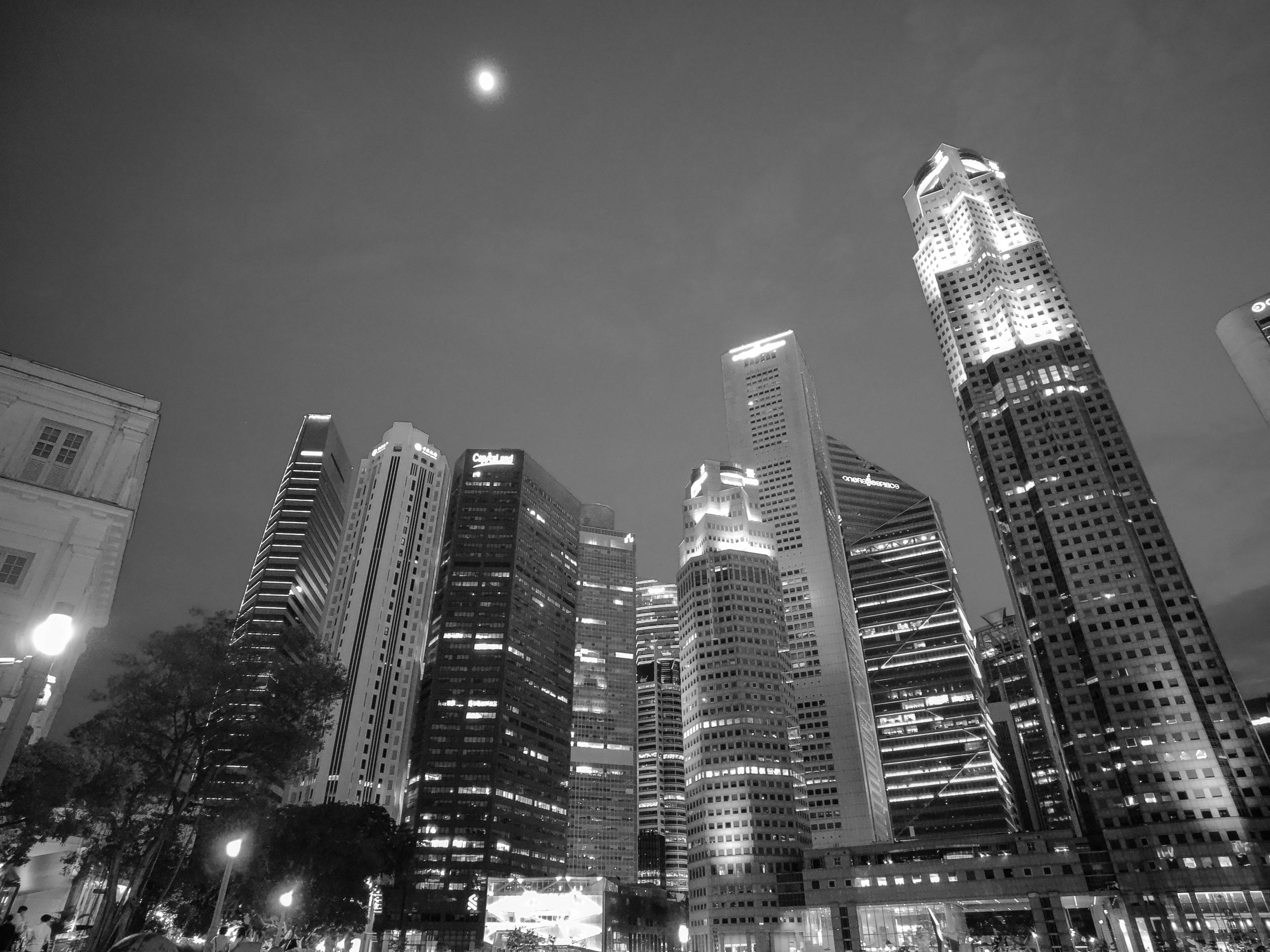
I also have a few cityscape photos waiting to be edited. I took these during a visit to the National Gallery Singapore, where I was amazed by the lighting effects showcased by the tall buildings at night.
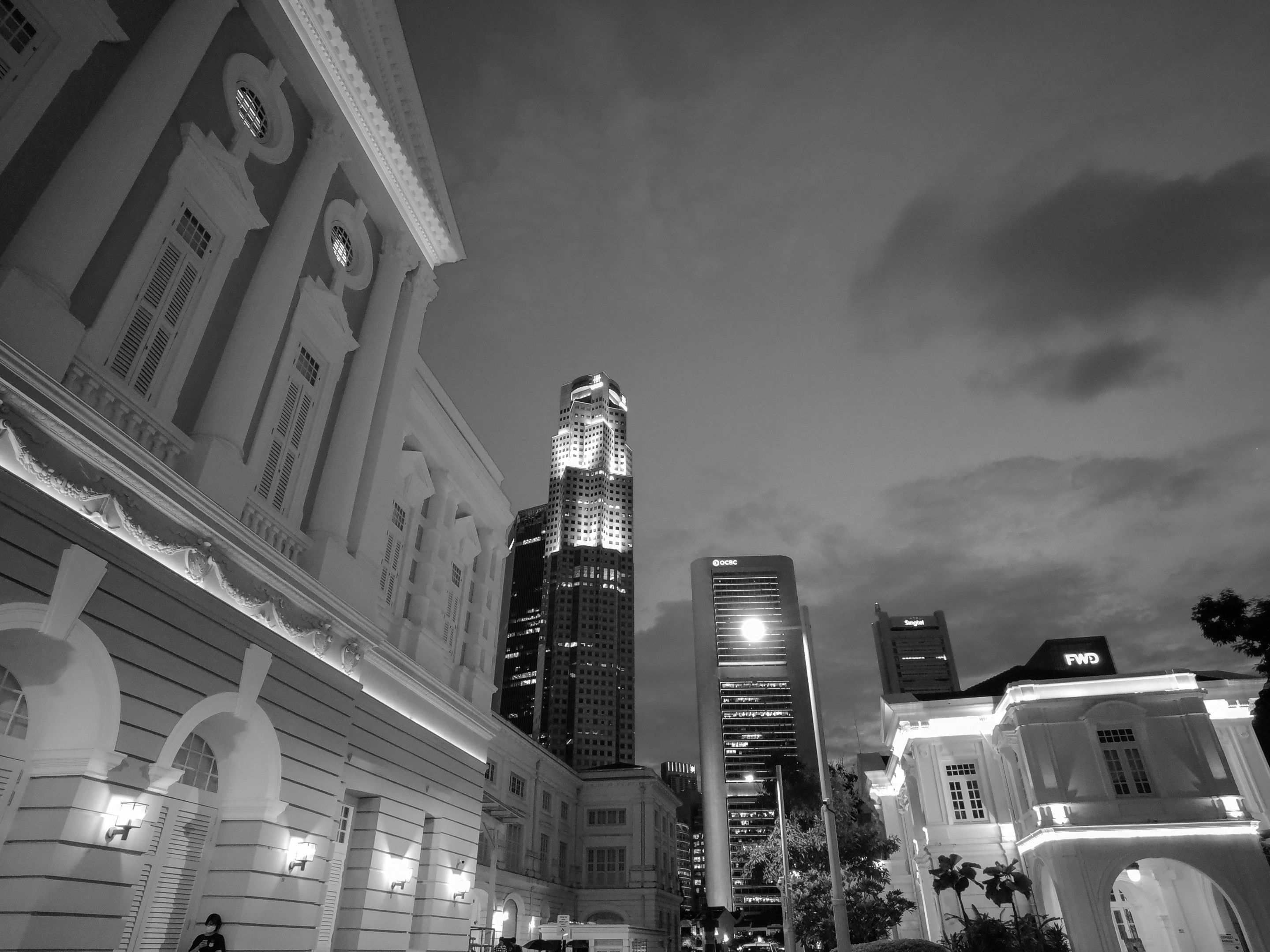
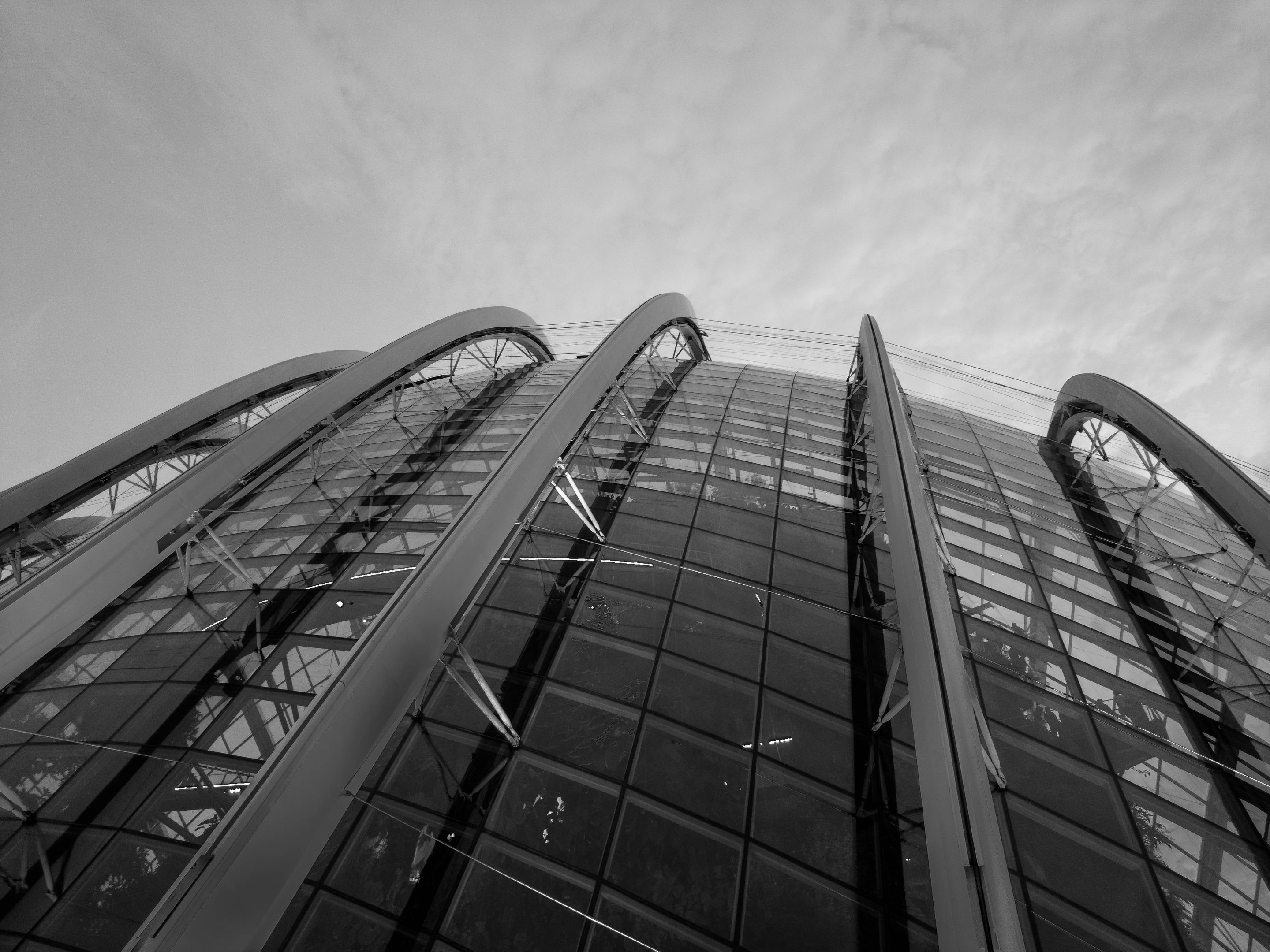
I believe the best time to take cityscape photos is during the blue hour—when the sky is still a vibrant blue, and the background lighting highlights the details of the buildings. This timing allows me to capture enough details of both the background and the cityscape, producing results that are far better than photos taken later at night when lighting fades.
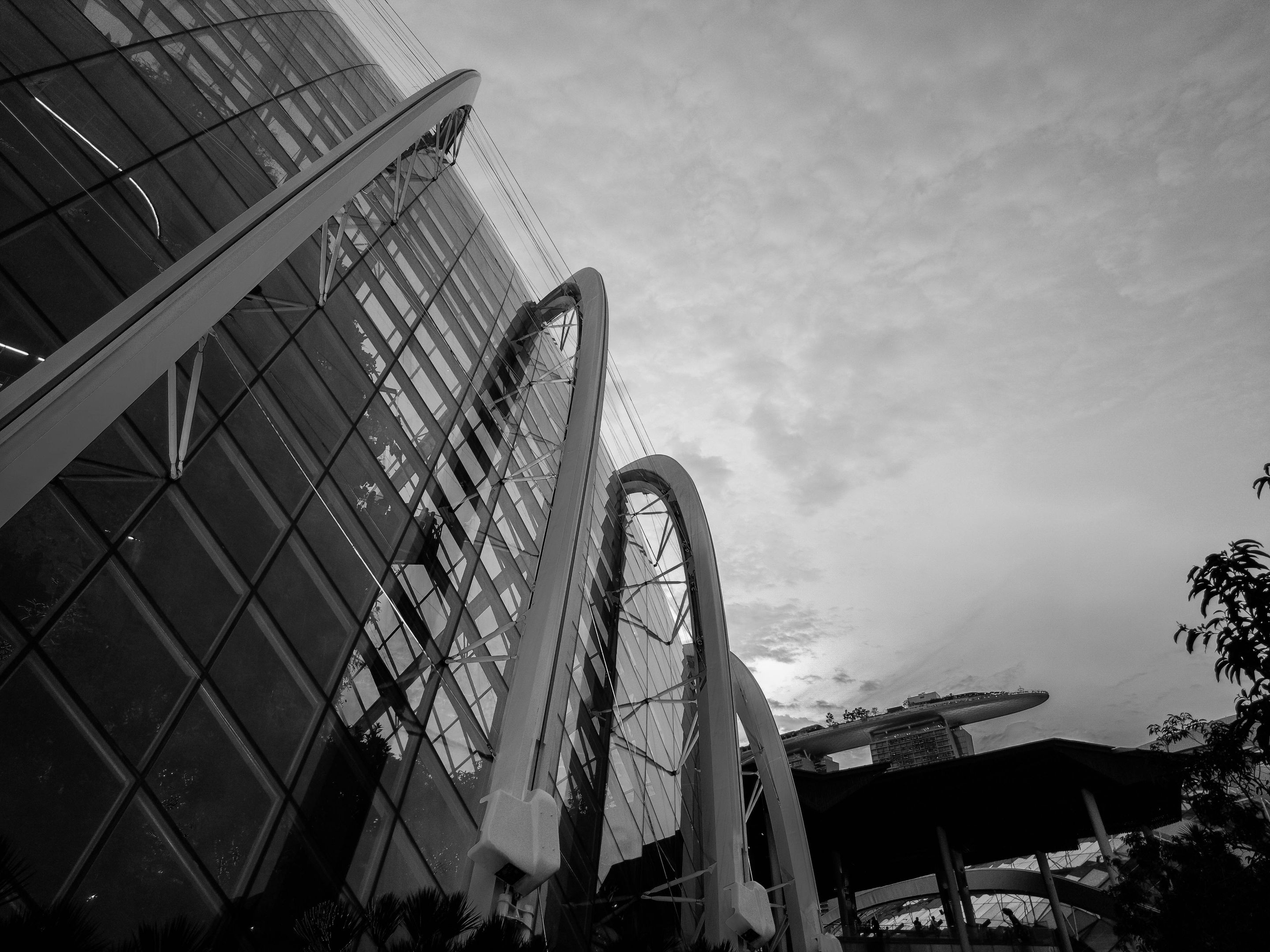
While sunset photos are often best displayed or edited in color, I’ve noticed that some images don’t look great in their colored versions. When this happens, I experiment by converting them to black-and-white, and it often turns out well.
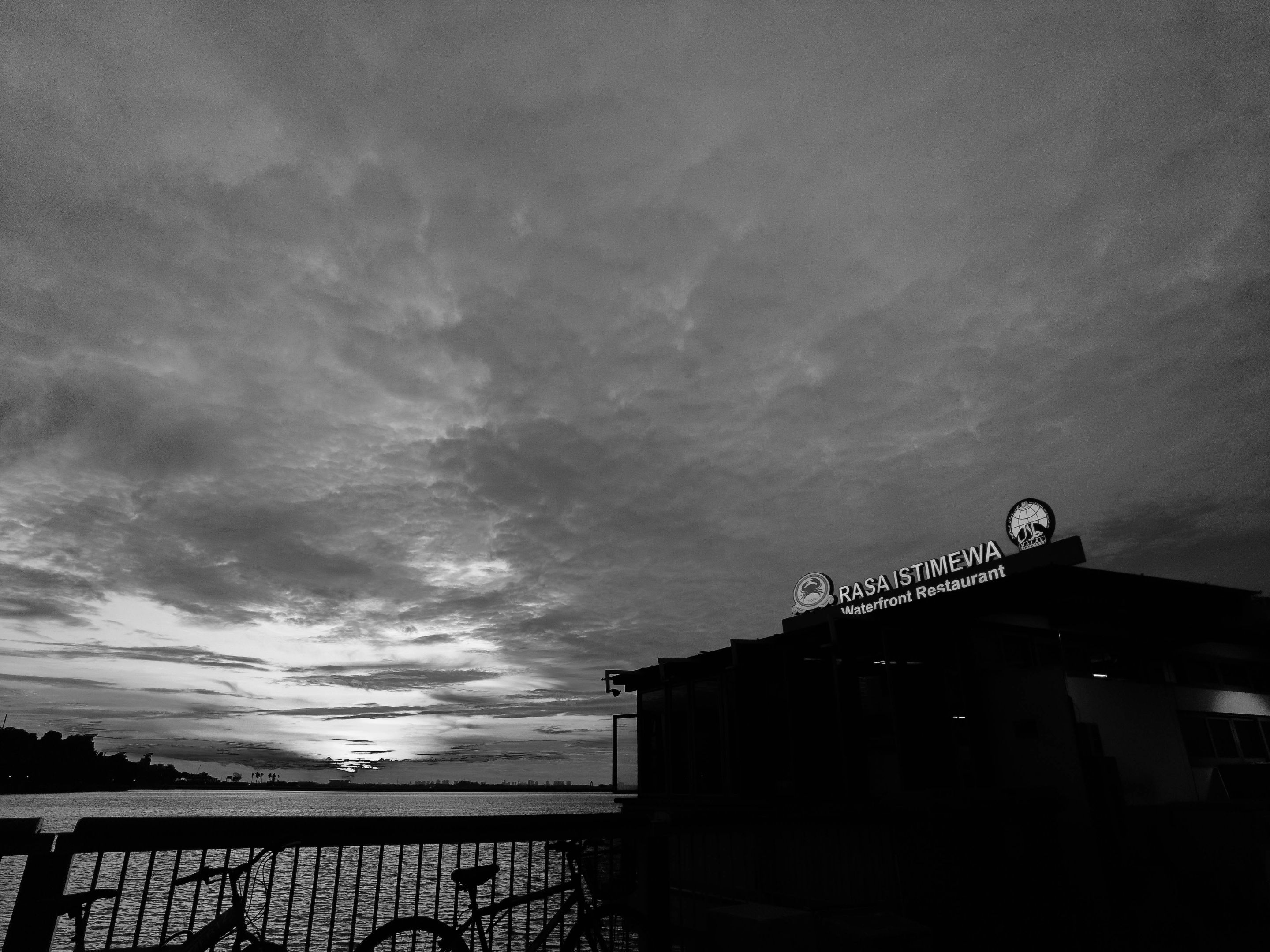
Sometimes, photos that don’t initially stand out can be salvaged using black-and-white editing techniques. This approach can bring new life and meaning to images that might otherwise be deleted or forgotten. That’s why I always set aside such photos and revisit them later for editing to determine whether they are worth keeping. In most cases, the converted photos become useful again simply by transforming them into black-and-white images.
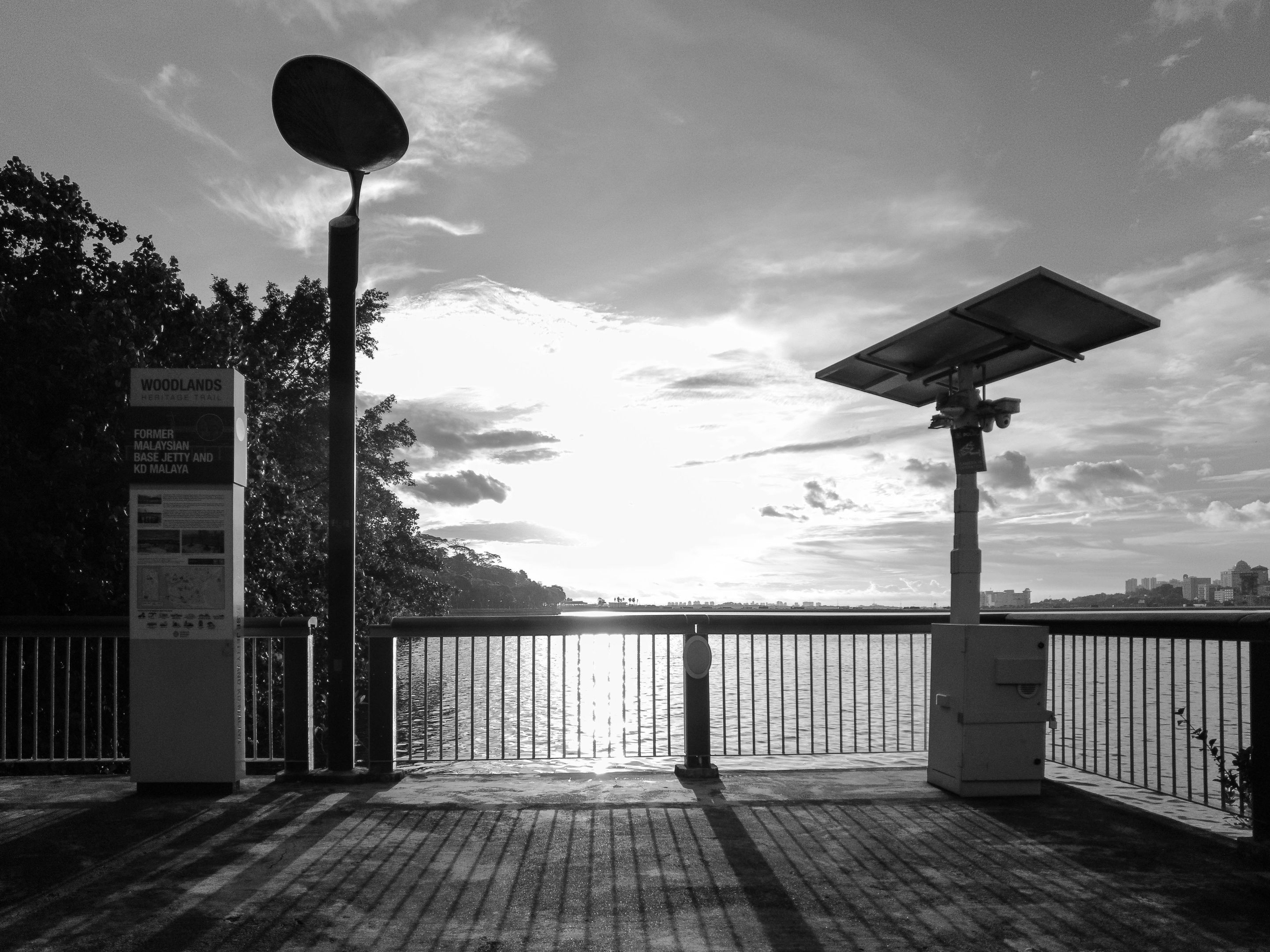
Photography is not just about capturing moments but also about finding new perspectives and giving meaning to each shot, even through post-processing. Revisiting old photos and experimenting with black-and-white editing has taught me that there’s always potential in what might initially seem unremarkable. Every image holds a story, and with the right approach, we can bring those stories to life.
